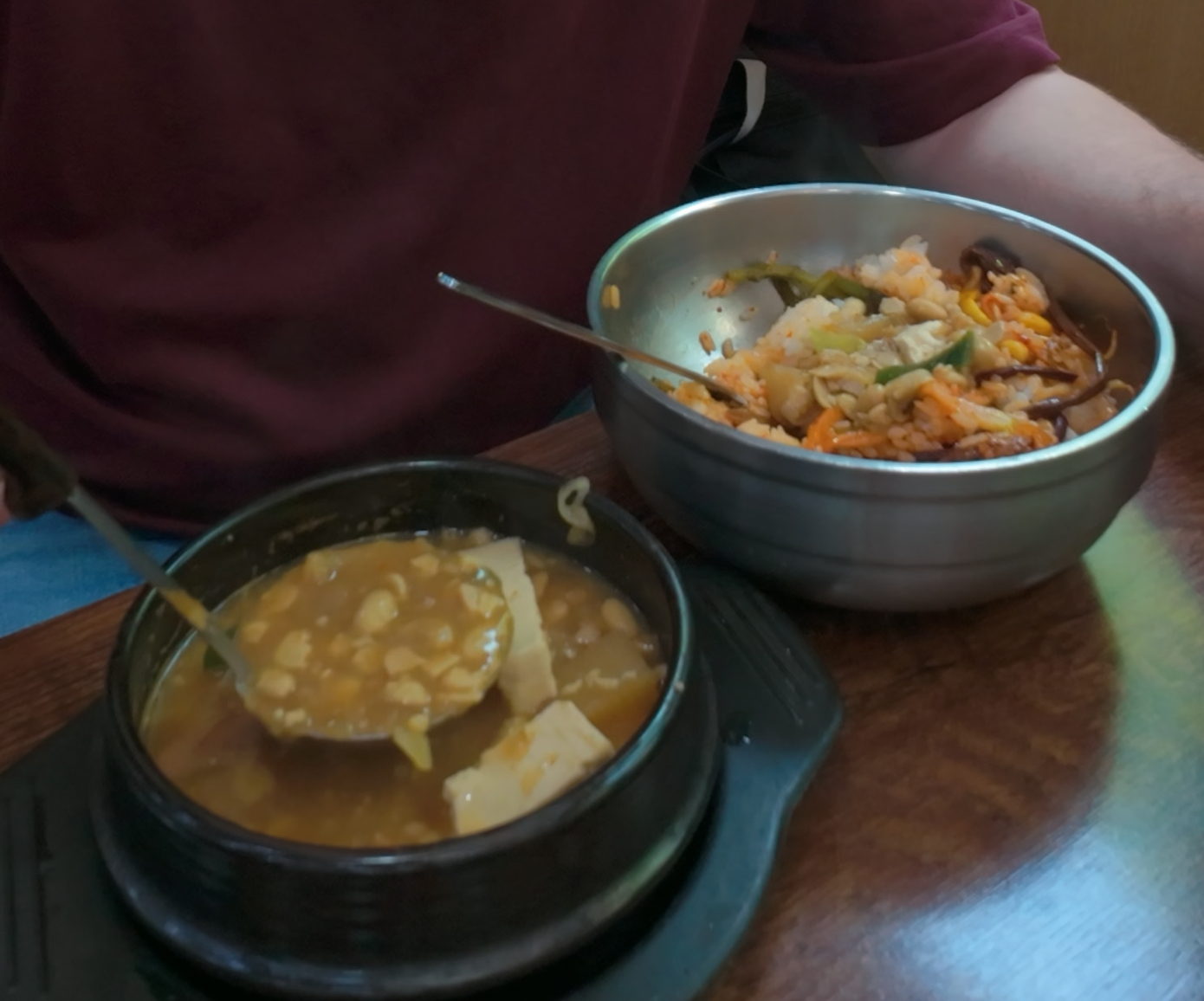Potentially Vegetarian/Vegan Dishes
Below you’ll find information about Korean dishes that can be found in both vegetarian and non-vegetarian varieties. In some cases, a dish might be vegetarian at one restaurant and non-vegetarian at another. In other cases, a restaurant might offer vegetarian and non-vegetarian variations of a dish on the same menu.

Cheonggukjang (청국장)
Cheonggukjang is a traditional fermented soybean paste known for its strong, pungent odor and rich, savory flavor. It’s similar to another fermented soybean paste called doenjang, but is fermented for a much shorter period. It’s highly nutritious and is considered a health food.
Cheonggukjang is most commonly used as the primary ingredient in a stew, cheonggukjang jjigae. However, unlike most stews, Koreans don’t usually say “jjigae” when they order it. Restaurants tend to list it on their menus just as “cheonggukjang”. Even so, it’s acceptable to order “cheonggukjang jjigae”.
Cheonggukjang stew recipes vary. Additional ingredients often include, tofu, cabbage, radish, zuchinni, onions; garlic, ginger, green chillies, or scallions. Seafood, beef, or pork may be added, though in my experience that’s not so common. However, it is common for the soup base to be made with anchovy or beef stock. Never assume that any given restaurant’s recipe is vegetarian.
